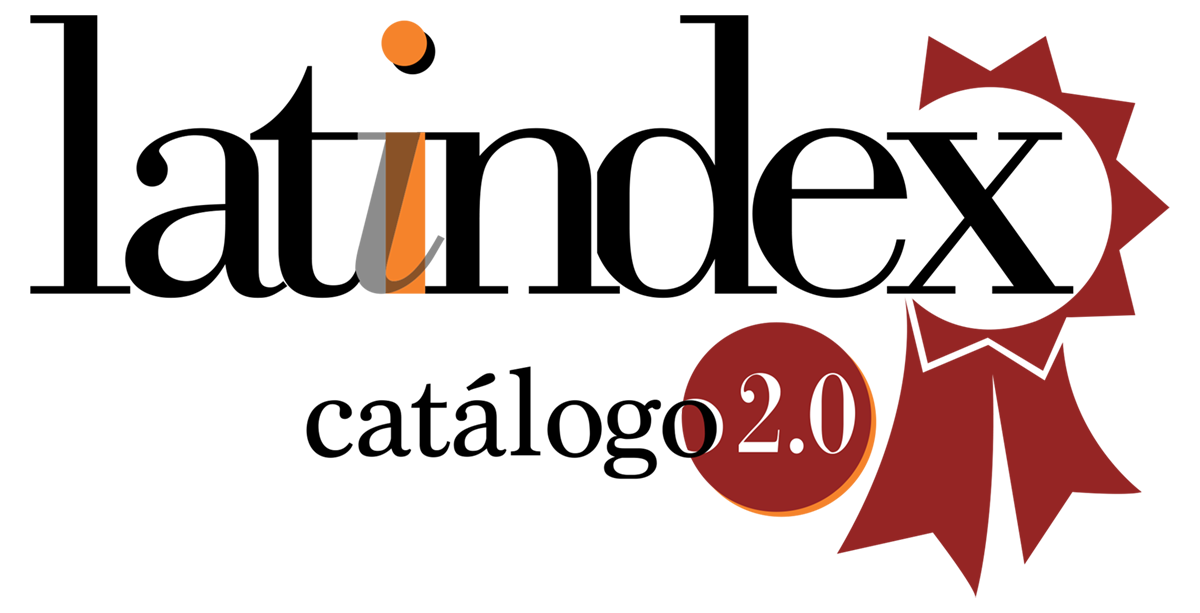Influence of social networks on the development of social anxiety in young people
DOI:
https://doi.org/10.52611/confluencia.2025.1318Keywords:
Anxiety, Adolescent, Online social networking, Mental healthAbstract
Introduction: Adolescence is a complex stage in which identity is explored, highly sensitive to the validation of the environment and social groups. In this context, social networks play a determining role in the development of adolescents, with a little-known influence on the development of social anxiety. Objective: To determine the influence of social networks on the development of social anxiety in adolescence. Methodology: Through a literature search in Spanish and English, in Pubmed, Cochrane and Lilacs platforms with a total of 14 articles. Results: Excessive use of social networks can have negative repercussions on mental health, productivity and social relationships. The process of personal self-evaluation mediated by social networks has different consequences for young people in search of approval, within which women would be more likely to show social comparison than men. Discussion: It is necessary to reflect on why people engage in social comparisons, what are the criteria for comparison and, finally, what are the consequences of these evaluations. Conclusion: There are different mechanisms producing social anxiety in young people who use social networks. A predominance in the female gender stands out and there is a need for further research on techniques to promote optimization and encourage prevention and intervention in the problematic use of social networks, for example, in relation to current legislation.
Downloads
References
Quiroga F, Capella C, Sepúlveda G, Conca B, Miranda J. Identidad personal en niños y adolescentes: estudio cualitativo. Rev Latinoam Cienc Soc Niñez Juv [Internet]. 2021 [citado el 5 de diciembre 2024];19(2):1-26. Disponible en: https://doi.org/10.11600/rlcsnj.19.2.4448
Trejos-Gil C, Tordecilla-Pájaro C, Mena MD. Adicción a la red social Tik Tok en jóvenes universitarios colombianos. Rev Comunic Salud [Internet]. 2024 [citado el 5 de diciembre 2024];14:1-18. Disponible en: https://doi.org/10.35669/rcys.2024.14.e339
Álvarez Menéndez M, Moral Jiménez M de la V. Phubbing, uso problemático de teléfonos móviles y de redes sociales en adolescentes y déficits en autocontrol. HAAJ [Internet]. 2020 [citado el 5 de diciembre 2024];20(1):113-25. Disponible en: https://doi.org/10.21134/haaj.v20i1.487
Pérez M, Quiroga-Garza A. Uso compulsivo de sitios de redes sociales, sensación de soledad y comparación social en jóvenes. Redes [Internet]. 2019 [citado el 5 de diciembre 2024];30(1):68-78. Disponible en: https://dx.doi.org/10.5565/rev/redes.809
Díaz-Moreno A, Bonilla I, Chamarro A. Comparación Social negativa: La influencia de la Ansiedad, la Regulación Emocional y el Uso Problemático de Redes Sociales. Ansiedad y Estrés [Internet]. 2023 [citado el 5 de diciembre 2024];29(3):181-6. Disponible en: https://doi.org/10.5093/anyes2023a22
Crusius J, Corcoran K, Mussweiler T. Social comparison: A review of theory, research, and applications. En: Chadee D, editor. Theories of social psychology [Internet]. 2 ed. USA: Wiley; 2022 [citado el 5 de diciembre 2024]. p. 165-87. Disponible en: https://research.tilburguniversity.edu/en/publications/social-comparison-a-review-of-theory-research-and-applications
Delgado P. La teoría del aprendizaje social: ¿qué es y cómo surgió? [Internet]. México: Instituto para el Futuro de la Educación - Tecnológico de Monterrey; 2019 [citado el 5 de diciembre 2024]. Disponible en: https://observatorio.tec.mx/edu-news/teoria-del-aprendizaje-social/#:~:text=Albert%20Bandura%2C%20un%20psic%C3%B3logo%20Canadiense,violencia%20los%20har%C3%ADa%20m%C3%A1s%20agresivos
Rodríguez-Rey, R., & Cantero-García, M. (2020). Albert Bandura: Impacto en la educación de la teoría cognitiva social del aprendizaje. Padres Y Maestros / Journal of Parents and Teachers, (384), 72–76. https://doi.org/10.14422/pym.i384.y2020.011
Arias-Soria S. Diseño de novela gráfica como medio de prevención de trastornos emocionales en adolescentes de 11 a 14 años por la construcción de identidades idealizadas en Instagram y Tik Tok [Internet]. Perú: Universidad San Ignacio de Loyola; 2021 [citado el 5 de diciembre 2024]. Disponible en: https://hdl.handle.net/20.500.14005/11432
Gaete V. Desarrollo psicosocial del adolescente. Rev Chil Pediatr [Internet]. 2015 [citado el 5 de diciembre 2024];86(6):436-43. Disponible en: https://dx.doi.org/10.1016/j.rchipe.2015.07.005
Iztaccihuatl B, Ramírez A, López A. Redes sociales: un complemento para la teoría del aprendizaje por observación. Seminario de investigación Kurt Lewin [Internet]. México: Universidad Autónoma Metropolitana; 2002. Disponible en: https://www.geocities.ws/seminario_lewin/AMEPSO02/Redes.pdf
Orbium Adicciones. El fenómeno FOMO: Fear of Missing Out [Internet]. España: ORBIUM; 2024 [citado el 5 de diciembre 2024]. Disponible en: https://orbiumadicciones.com/nuevas-tecnologias/fenomeno-fomo-fear-of-missing-out/#:~:text=El%20fen%C3%B3meno%20FOMO%20por%20sus,te%20enteras%20v%C3%ADa%20redes%20sociales
Adams O. The effect of social comparison and fear of missing out on anxiety symptoms in late adolescents [Internet]. USA: Universidad de Connecticut; 2021 [citado el 5 de diciembre 2024]. Disponible en: https://opencommons.uconn.edu/srhonors_theses/761?utm_source=opencommons.uconn.edu%2Fsrhonors_theses%2F761&utm_medium=PDF&utm_campaign=PDFCoverPages
Rahmania FA, Ramadhayanti JS, Andini TAD, Nugraha SP. Fear of Missing Out (FOMO) as a Mediator of Anxiety on Social Media Fatigue in Early Adulthood. Jurnal Ilmiah Psikologi [Internet]. 2023 [citado el 5 de diciembre 2024];10(1):85-92. Disponible en: https://doi.org/10.15575/psy.v10i1.20956
Prieto Gutiérrez JJ, Moreno Cámara A. Las redes sociales de internet ¿una nueva adicción? Rev Argent Clín Psicol [Internet]. 2015 [citado el 5 de diciembre 2024];24(2):149-55. Disponible en: http://www.redalyc.org/articulo.oa?id=281946783007
Correa-Rojas J, Grimaldo-Muchotrigo M, Malvaceda Espinoza E. FoMO, Adicción a Facebook y Soledad como Determinantes del Phubbing en Universitarios Limeños. Psykhe [Internet]. 2022 [citado el 5 de diciembre 2024];31(2):1-11. Disponible en: https://doi.org/10.7764/psykhe.2020.22579
Blachnio A, Przepiorka A, Boruch W, Balakier E. Self-presentation styles, privacy, and loneliness as predictors of Facebook use in young people. Pers Individ Dif [Internet]. 2016 [citado el 5 de diciembre 2024];94:26-31. Disponible en: https://doi.org/10.1016/j.paid.2015.12.051
Barrios-Borjas D, Bejar-Ramos V, Cauchos-Mora V. Uso excesivo de Smartphones/teléfonos celulares: Phubbing y Nomofobia. Rev Chil Neuro-psiquiatr [Internet]. 2017 [citado el 5 de diciembre 2024];55(3):205-6. Disponible en: http://dx.doi.org/10.4067/s0717-92272017000300205
Varchetta M, Fraschetti A, Mari E, Giannini AM. Social Media Addiction, Fear of Missing Out (FoMO) and Online Vulnerability in university students. Docencia Univ [Internet]. 2020 [citado el 5 de diciembre 2024];14(1):e1187. Disponible en: https://doi.org/10.19083/ridu.2020.1187
Rahardjo W, Qomariyah N, Mulyani I, Andriani I. Social media fatigue pada mahasiswa di masa pandemi COVID-19: Peran neurotisisme, kelebihan informasi, invasion of life, kecemasan, dan jenis kelamin. J Psikol Sos [Internet]. 2021 [citado el 5 de diciembre 2024];19(2):142-52. Disponible en: https://doi.org/10.7454/jps.2021.16
Downloads
Published
How to Cite
Issue
Section
License
Copyright (c) 2025 Revista Confluencia

This work is licensed under a Creative Commons Attribution-NonCommercial-NoDerivatives 4.0 International License.









